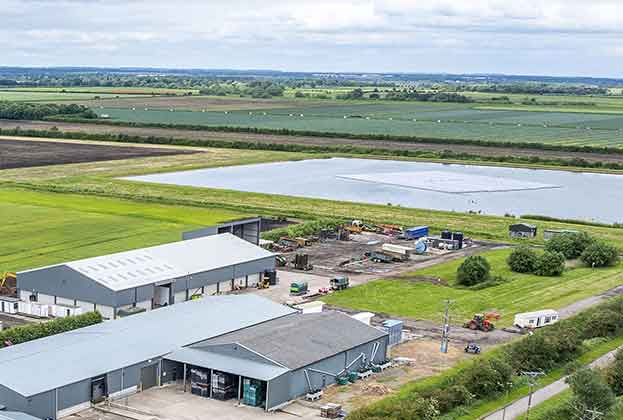1. TCFD and climate transparency
An avalanche of sustainability disclosure requirements is coming and The Taskforce on Climate-related Financial Disclosures (TCFD) is leading the way. Since January disclosure is now mandatory in the UK and will help to improve the availability, consistency and reliability of information, ultimately helping to tackle climate change.
Read more: In plain English: Taskforce on Climate Related Financial Disclosures (TCFD) reporting
2. Net zero and climate positivity
In 2020 the corporate commitments to net zero came in thick and fast and now the race is on to understand what this might mean for businesses. This includes how best to achieve an overall balance between emissions produced and emissions taken out of the atmosphere before the 2050, or in some cases 2030, deadline.
However, there are some who don’t see this as going far enough. Instead they are focusing on ‘climate positivity’. Rather than settling for neutral, some are going beyond net zero emissions to create environmental benefit.
3. Carbon-insetting
For many, carbon-insetting could provide the answer to achieving net zero. This is essentially an investment into emission reduction projects within an organisation’s own supply chain. In contrast to carbon-offsetting, this investment can be retained within a company’s value chain.
4. Whole estate reporting
This offers the opportunity for rural landowners to holistically consider whole estate performance, moving away from overly simplistic and siloed approaches, which might not adequately consider the interconnected nature of both natural and social assets.
Underpinned by natural capital analysis and sustainability principles, it uses geographic information system (GIS) and survey information to generate key ecosystem service scores, providing a versatile yet consistent framework for reporting.
Read more: Whole estate reporting
5. Circular economy
New approaches to the procurement and disposal of goods to prevent materials ever entering the waste stream and reducing carbon emissions associated with their production, handling and disposal, are set to become mainstream.
6. Generation Z
The generation born between 1996 and 2016 are environmentally motivated and are pushing the climate change agenda. Given they are set to overtake millennials in spending power by 2031, their views and values will drive more sustainably motivated consumer trends, employment choices and investment decisions.
7. 360 degree brands
Social media has made it almost impossible for brands to get away with greenwashing. Organisations who boast progressive sustainability values which are found to be wanting will receive public backlash. Consequently, 360 degree brands consider everything from ethics to environmental impact in order to meet customers’ increasingly high standards.
8. Green finance
ESG investing, green exchanges, green pension options and choices for conscious institutional investors are becoming increasingly popular, alongside rising financial literacy. There is an increasing pressure to decarbonise balance sheets, including clear timelines for restrictions and phase-outs of financing for fossil-fuels.
9. WELL buildings
With a potential return to ‘normal’ now on the horizon, the real estate sector has a unique role in providing occupiers, not just with reassurance, but also with tangible benefits to individuals mental and physical health and overall wellbeing. The WELL standard is a performance based system optimised for commercial and residential buildings.
Read more: Health and wellbeing certifications offer people returning to the workplace peace of mind
10. Biodiversity
As humans diminish biodiversity and destroy natural habitats by cutting down forests and building more infrastructure, they’re increasing the risk of pandemics such as Covid-19. A transformation in the way investors deal with the loss of biodiversity is accelerating as a result. The UN Biodiversity Conference in Kunming, China this May is set to deliver a global framework to help tackle this risk and could be biodiversity’s watershed equivalent of the Paris Climate Agreement.

.jpg)







.jpg)
.jpg)